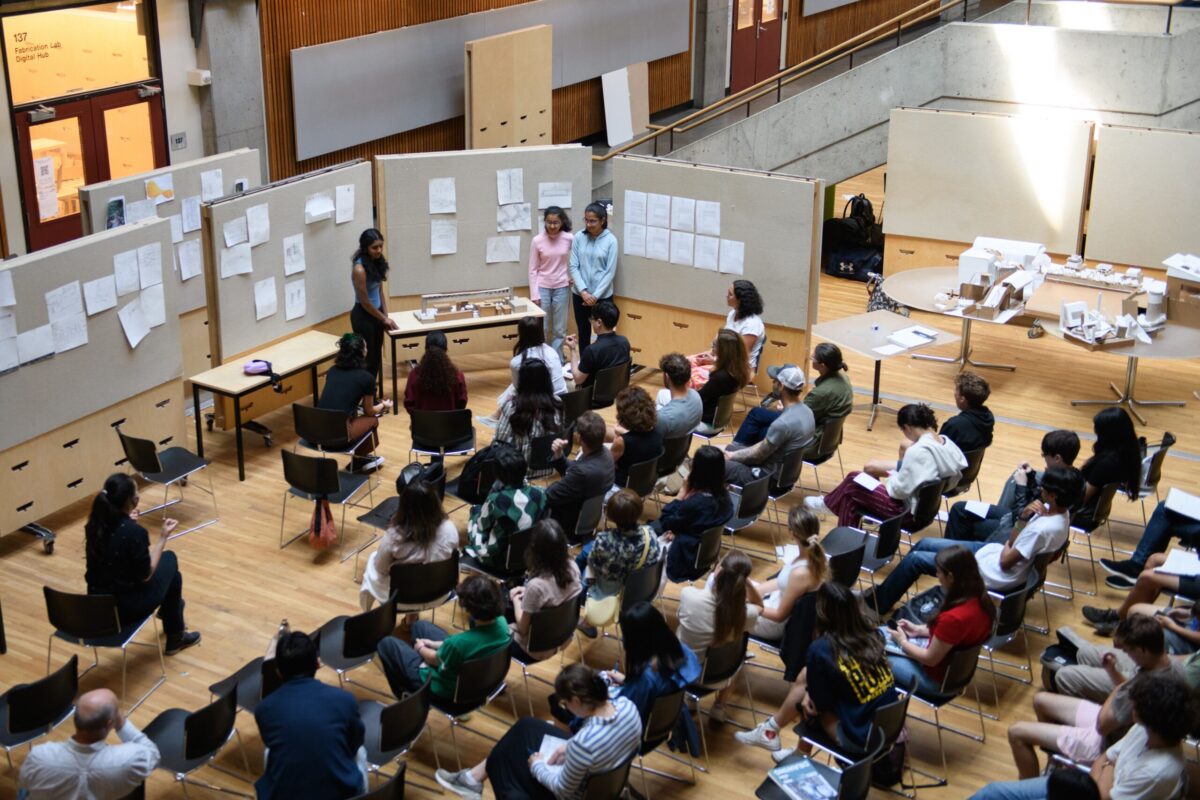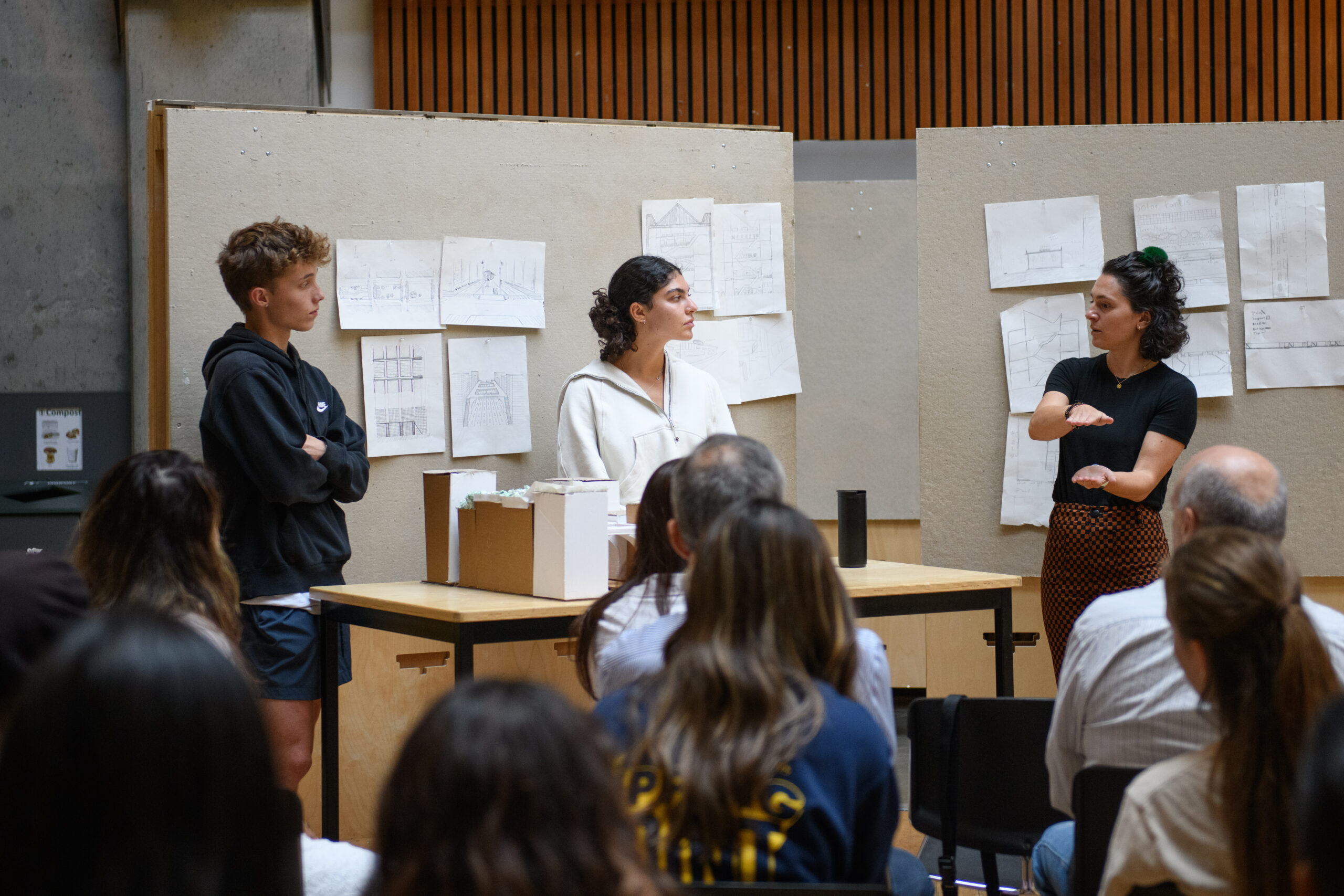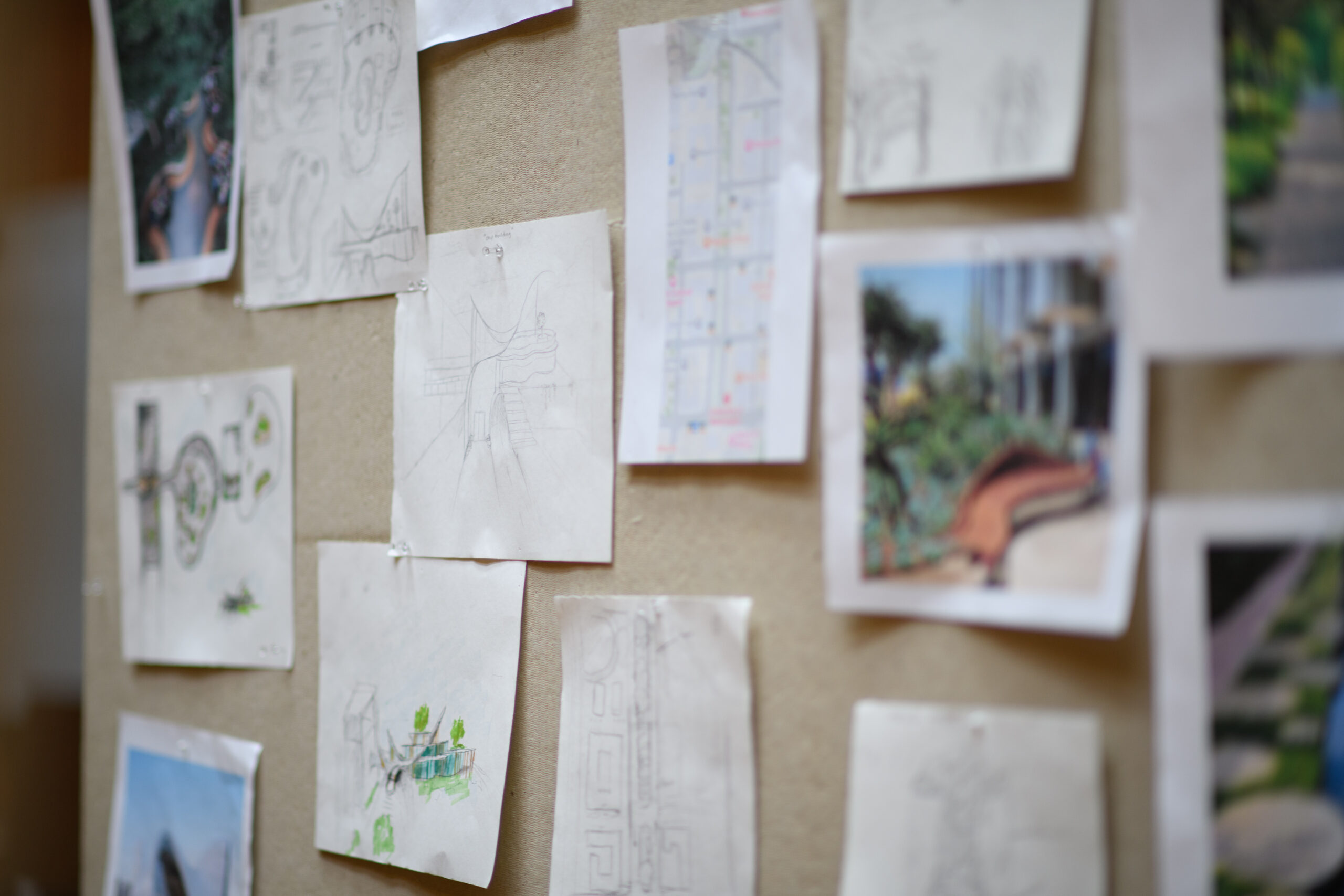Posted on November 30, 2023
Post categories: Architecture

How did you know what you wanted to be when you grew up? Was it your parents’ job? Did you see it portrayed in your favorite TV show? For many, the field of architecture isn’t one typically portrayed or seen as an option.
While this program started as a summer camp for Middle School students, offering it to high schoolers provides an invaluable opportunity to not only see what it’s like to be a first-year student on campus but, to learn about the field of architecture and feel out whether it might be a good fit after graduating.
“Exposure to the field of architecture to youth is important because architecture is a path that plays a role in our current and future world. In the process of asking questions in reshaping the built environment, students may ask themselves questions that inform their life and design values.” – Meganne DesRosier, Co-Instructor
The architecture camp offered by the University of Washington’s Continuum College Youth & Teen Programs gives high school students a glimpse into college. The program is designed to offer an experience that mirrors a first-year studio class. During the program, students are encouraged to explore architectural concepts, hone their design skills, and engage in hands-on projects. The curriculum is crafted to challenge students’ creative thinking and problem-solving abilities, fostering a deep understanding of the principles that underpin architecture.
“I am having a good time going to UW and seeing a bit of the city. Plus it felt like I’m learning about [what] working in architecture would be like and it’s interesting.” – A student in the program

Ranging from ninth to twelfth grade, participants come with varying levels of familiarity with architecture. Some are already passionate about architecture and view the program as an opportunity to deepen their knowledge, while others are curious learners seeking to explore.

“For students who come in without the knowledge, it’s a chance to expose students to new subjects, new topics, new content. For students who come into the class with some experience already in that area, it gives them a chance to kind of dive deeper into that area.” – Leslie Rome, Continuum College Youth & Teen Programs